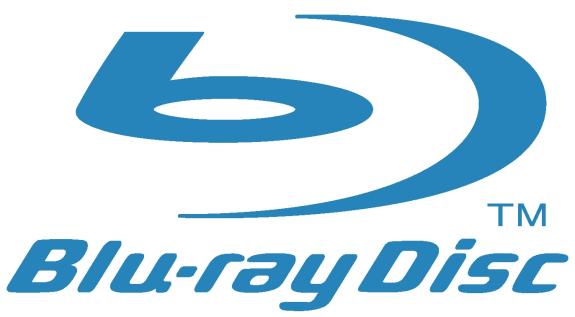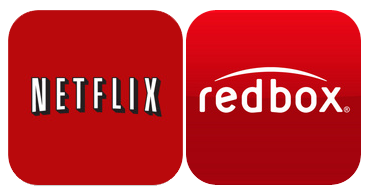Cinavia DRM: How I Learned to Stop Worrying and Love Blu-ray’s Self-Destruction
by Ganesh T S on March 21, 2012 11:00 AM EST- Posted in
- Home Theater
- Blu-Ray
- DRM
- Cinavia
DRM (Digital Rights Management) is intended to protect media from being played in an unauthorized manner. However, more often than not, it fails to serve the purpose. Many people in the content industry are fully aware that it is not possible to stop media piracy. They view DRM as a method to slow down the pirates. The panel discussion on anti-piracy measures at the HPA 2011 Tech Retreat compared this to using a key to lock a car, even though a thief with proper equipment could still steal it.
High definition content is valued by the content owners, resulting in extra efforts being taken to protect them from being pirated. For example, while standard definition Netflix streams play on a variety of platforms, high definition streams require more secure systems with protection across all stages of playback. Similarly, not much effort has been taken to stop the usage of open source DVD decrypters / decoders, which mean that the consumer doesn’t need to invest in a licensed player to play back DVDs. Open source software like VLC can play back protected DVDs without any issues.
Blu-rays, on the other hand, with their high definition content, are yet to be hacked enough to be played back with full experience using open source tools. There is a constant tussle going on between the decryption tool makers (who enable the Blu-ray disc content to become unprotected) and the Blu-ray publishers who don’t want this to happen (and try to find new ways to encrypt their Blu-rays without breaking player compatibility in the field). The net result is that almost every new Blu-ray fails to play back on a player if it doesn’t have the latest firmware updates. This is obviously a drawback for consumers who just want to put the disc in the tray and enjoy the movie.

In today’s piece, we will be concentrating exclusively on Blu-rays. A look at the market trends seems to indicate that online streaming services like Netflix and Hulu are overtaking conventional media distribution channels such as DVDs and Blu-rays. However, this doesn’t mean that optical media will die out anytime soon. Currently, a large number of consumers don’t have reliable enough Internet access to guarantee a good experience with premium streaming services. Market research indicates that Blu-ray sales have indeed shown an annual increase. This growth can be attributed to the low cost of Blu-ray players (some could be found for as low as $49 last November) and the rising number of $5 Blu-rays available in the bargain bins of various big box retailers. Blu-ray rentals from companies such as Redbox have also shown an increase in popularity.

The BDA sees Blu-ray shipments growing for the foreseeable future. However, they have also realized that the future of the Blu-ray industry lies in eventually adapting to the cloud / Internet infrastructure. The UltraViolet initiative is geared towards this. We will look at this in detail later in the piece.
The rise of VoD services will definitely threaten Blu-ray, particularly because of the ease of use associated with them. In almost all cases, one can start watching a movie on Netflix or Vudu with a few clicks. Compare this with current Blu-rays where users have to put up with a number of trailers and copyright messages before the movie starts playing. It is no wonder that consumers with high speed Internet often prefer services like Vudu over Blu-rays. Given this situation, Blu-rays continue to come with pesky DRM mechanisms. The latest in this lineup is Cinavia. Before going into its details, we will have a brief overview of all the DRM mechanisms involved in Blu-rays.










121 Comments
View All Comments
haukionkannel - Wednesday, March 21, 2012 - link
Good point!I allso hate those extras and I have paid for that movie! And if pirate can get the movie without those "extra" features... I am really pissed off...
I allso byumy movies but every time I watch again those extra warning screens I wonder why... I want that movies studio gets my money, thats ok, but I don't want to give up my sanity, by watching all those extras
Swirlser - Wednesday, March 21, 2012 - link
http://www.lauexplorer.com/2010/03/10/products/leg...Want me to cough-up for that TV series Im watching atm? Extremely simply answer! Match the convenience level of the above pic (link) coupled with a sane price tag.
No fancy tech or laws required.
This coming from a pretty straight laced fellow, who pays his taxes and bills and I think Ive 2 audio tracks out of many, many thousands that were pirated (before the preview extension I pirated to see if I liked, then actually bought it legitimately if I did, deleted if I didnt - the 2 which I didnt pay for are from a certain artist - initials JB >.< - who I couldnt live with myself if I gave him a cent, hes got a *stupid* amount of money already)
Aside from a certain percent of people who simply refuse to pay for anything they can possibly get for free, I think the vast majority of people would fall into line if you price it sensibly and make it as simple and convenient as possible. Music is there now, films arent far off (speaking more so of streaming, but even physical BDs are coming to a more reasonable price level.) My main beef is TV, the time gap between regions (US content specifically) to view my fav shows is immense and you just cant get up to the minute anything via paid for services (in Ireland), if you could, I'd be all over it.
jnmfox - Wednesday, March 21, 2012 - link
LOL, great minds think alike!Swirlser - Wednesday, March 21, 2012 - link
Lol! Yeah, thats exactly what I thought of when I read this article.Such a shame, the time and money wasted (in vain!) trying to get a small percent and ultimately punishing the legitimate customer is all thats going on here.
Instead, understand there is a percent (a greater percent I'd be willing to bet good money on) of people who don't enjoy getting shafted and paying crazy money for a film or watch things weeks (or more) after they have been aired else-where and then go about getting it by whatever means necessary, most know a friend or a friend-of-a-friend that has damn near everything and will stream it to you for nothing.
If Netflix (AFAIK in the US have a better selection - I'm hoping it advances here) or Lovefilm or whoever else runs services here actually had the content (rather than largely ancient stuff which accounts for the bulk on offer currently), I'd subscribe!
Sadly I know only too well that there are layers of BS at work preventing this to happen, rather than just a greedy A-hole. But the platform is there, the devices are there, the infrastructure is widely available (needs to be expanded further), but it can be done. The obstacles lie entirely with some snotty out of touch publishers and advertisers who seem hell bent on throwing good money after bad. They wont win!
ssj3gohan - Wednesday, March 21, 2012 - link
I haven't viewed a single DRM-protected video in probably over 6 years (I became so incredibly annoyed with VHS/DVD and television advertising/unskippable content and all that) but since my last endeavor with that things have only seem to have gotten worse. I honestly didn't know that there were things like regional restrictions (what the hell?) and the necessity for approved screens (WHAT THE HELL?!?!) to view certain copyright. It just seems really, really out of this world. Cinavia really just seems to be a logical step on the way. I am already calling it: somewhere in a future BD specification they will require physical bd stores to knife any and every customer who buys protected content. The revision after that ensures that this indeed results in death. What the hell are those consumers thinking, buying our stuff? We don't want that, go away! RRRAAaaAAaarghhh!If I want to see something, I type it into youtube and I usually get a good idea of the content. I can skip advertising within a couple of seconds, get HD resolution and if I like it, I can subsequently download it legally or, if it's not available in my region for some arbitrary reason (this really seems to be much the norm these days) I can pirate it. That way I don't waste any time on frankly something I am not entertained by in the slightest, I have full control over my own purchases and my viewing behaviour. Just like I had with earlier VHS releases (which had maybe 2 minutes of pre-roll stuff) and subscription VOD services like a lot of starcraft (or in general: gaming-related) stuff.
Sanctusx2 - Wednesday, March 21, 2012 - link
Matroskas, really? I don't understand why the article seems to imply this is the dominant format. MKV is mainly the format you only see with anime, where subtitles and multiple audio streams are much more relevant. The broader video scene has favored avi containers with h.264/xvid encoding for years for everything from cams to blu-ray rips.Everytime I read MKV in this article I had to cringe and question the credibility of the author.
Spivonious - Wednesday, March 21, 2012 - link
Why would I sacrifice quality when ripping (which is what h.264/xvid is doing)?MKV is perfect if I want to grab just the movie and the main audio track from the disc. No quality loss, and smaller than if I did an ISO or folder structure rip.
DRM hurts nobody except legitimate consumers. As this article explains, any DRM the providers can come up with is cracked within two weeks.
The music industry is finally coming around to selling DRM-free tracks. Why can't the movie studios do the same?
ganeshts - Wednesday, March 21, 2012 - link
High definition stuff in AVI? The only ones I have seen are the XViD encodes of Blu-rays and they are very rare compared to H.264 in MKVs.. I will leave it to the other readers to judge for themselves, but my research indicates that MKV is the most common container for high definition stuff and AVIs are suited for standard definition TV recordings and DVDRips / BDRips of 1 and 2CD sizes.iamezza - Wednesday, March 21, 2012 - link
mkv is definitely the most dominant format for HD content.avi is the most dominant for SD content.
Iketh - Wednesday, March 21, 2012 - link
MKV is the future... you sir, are outdated